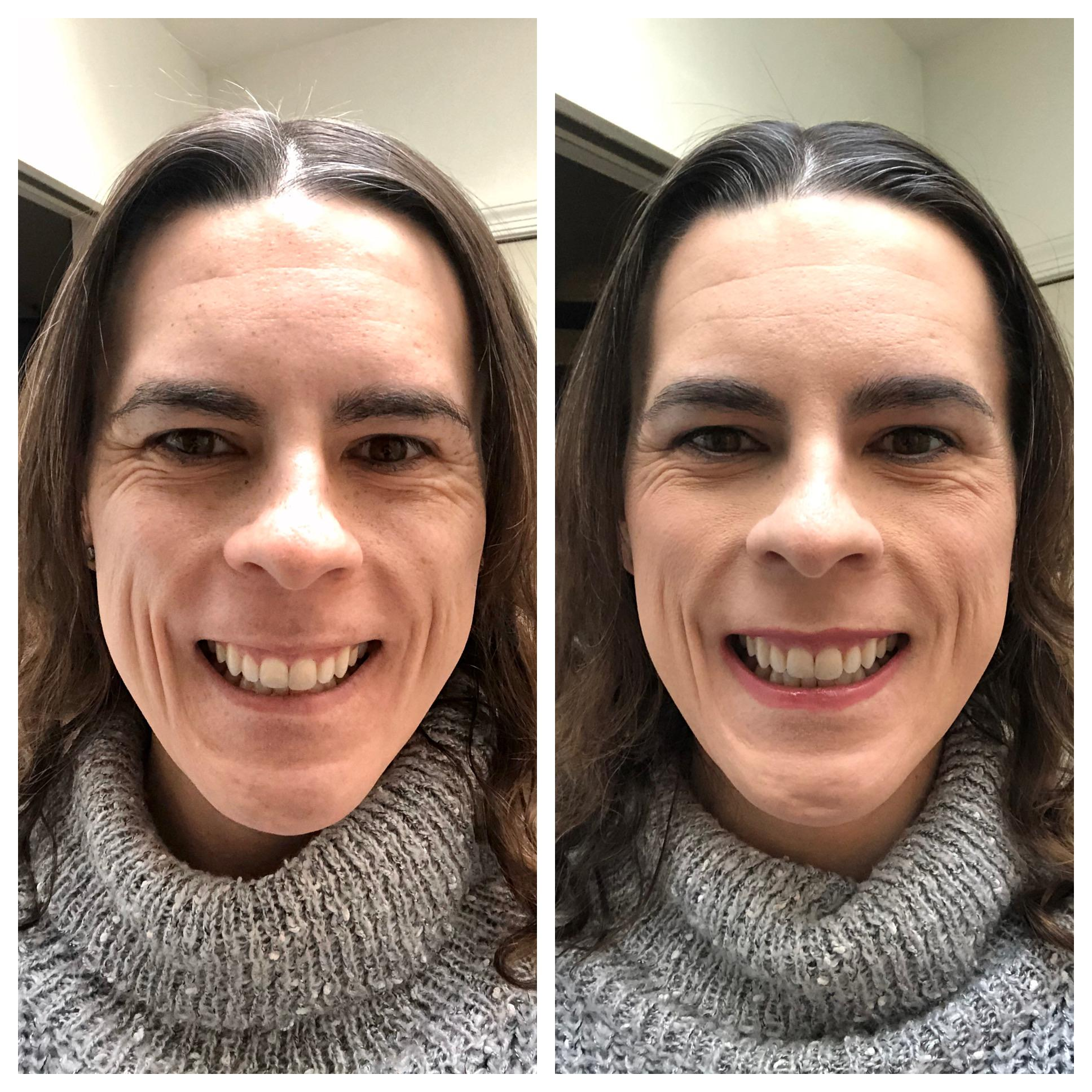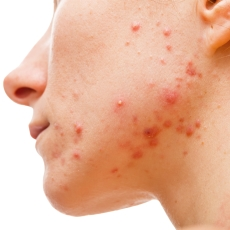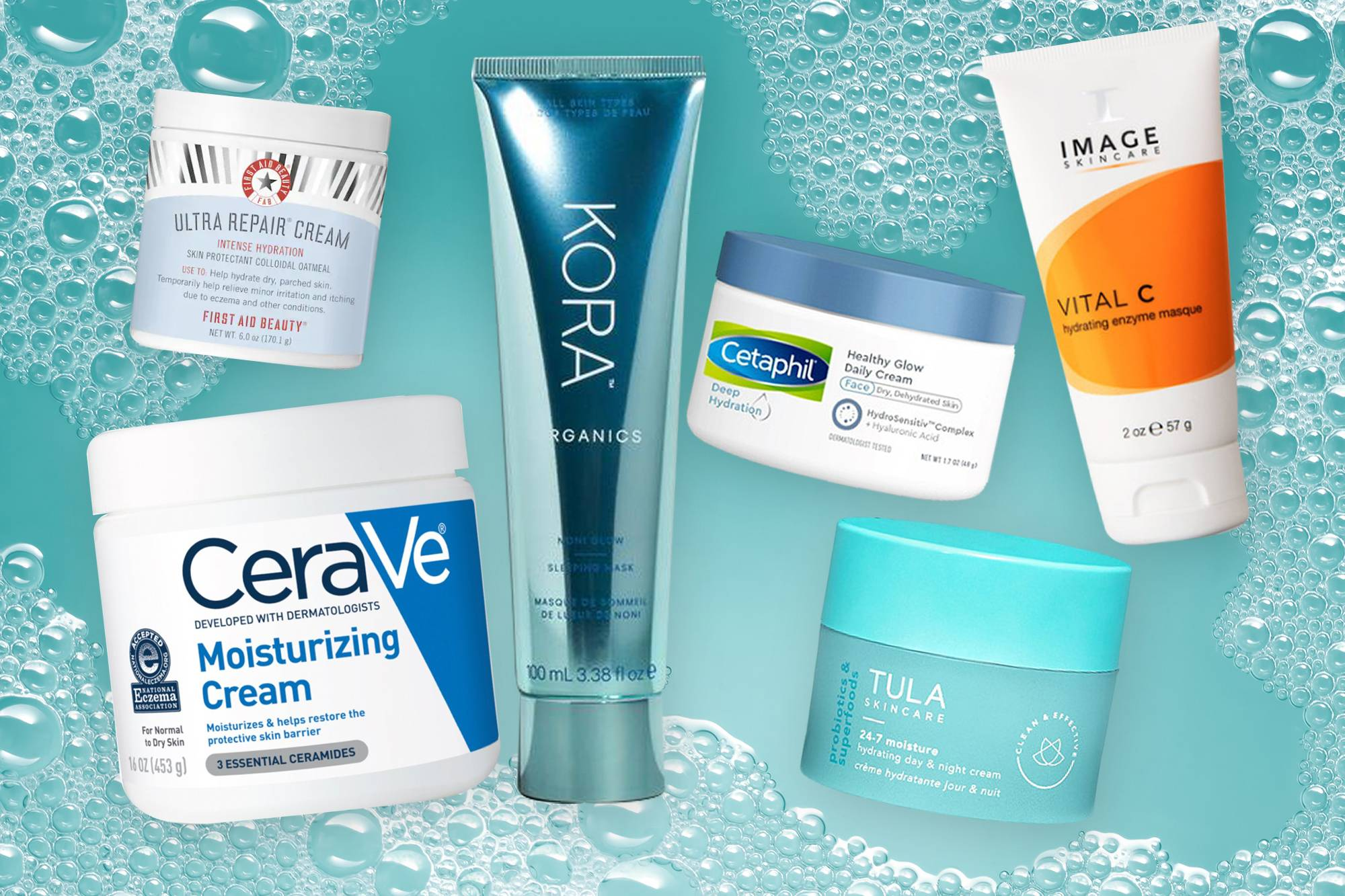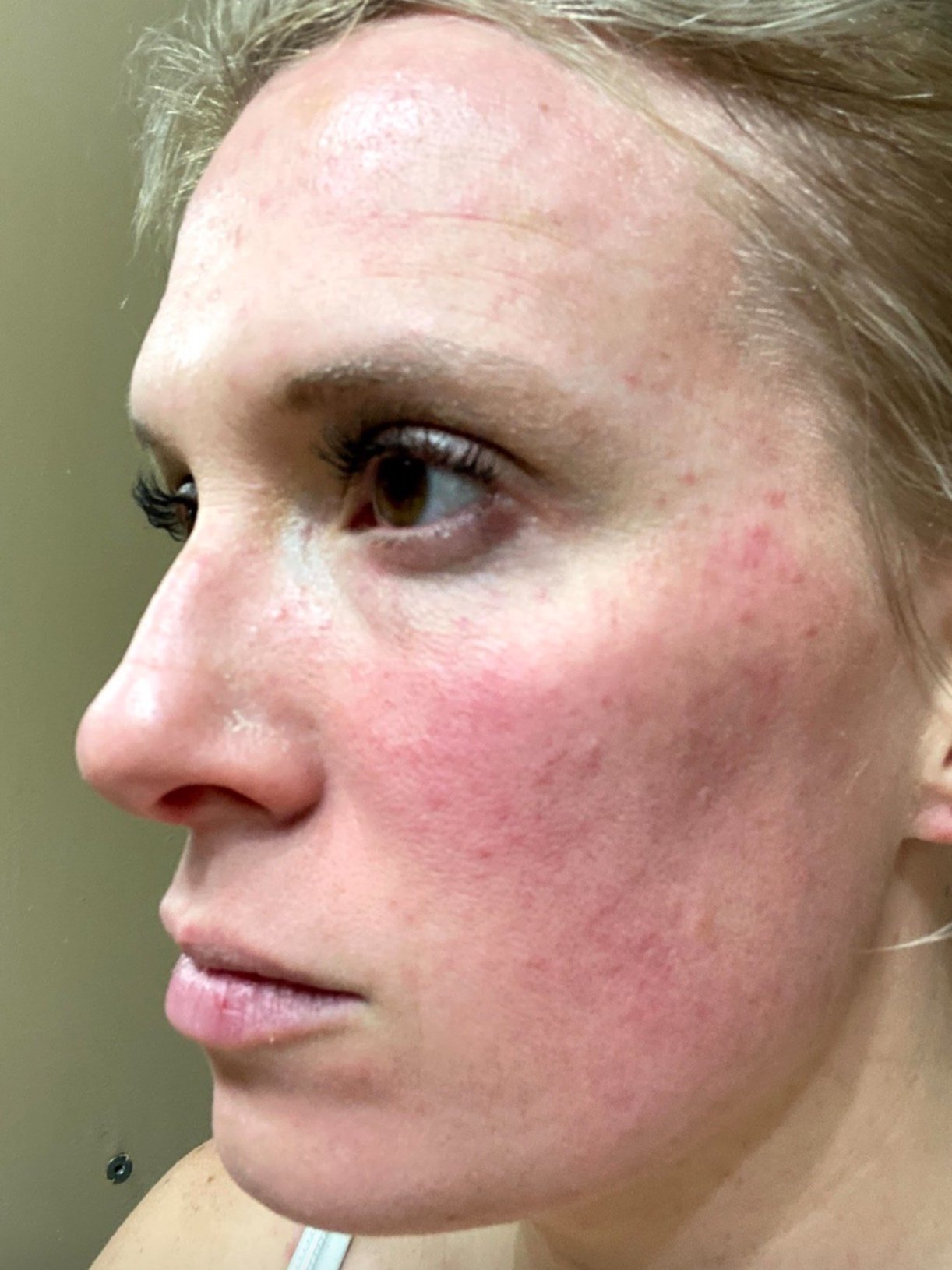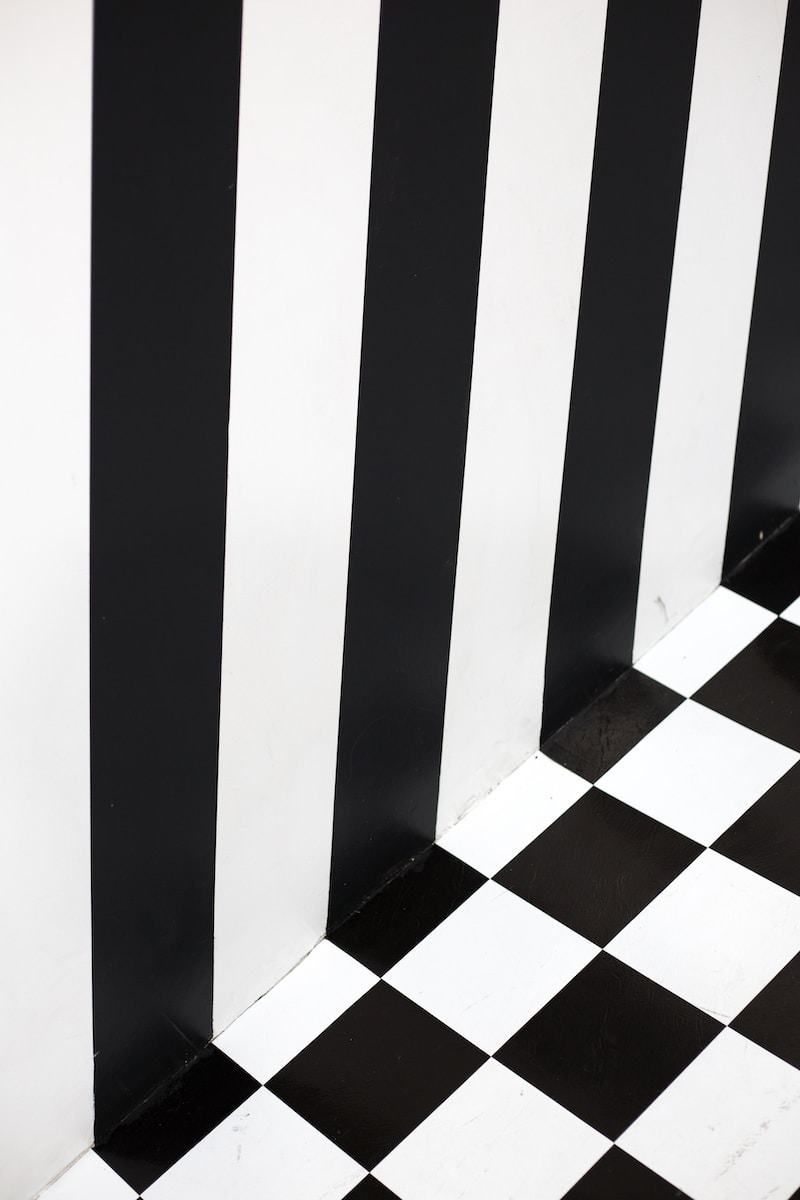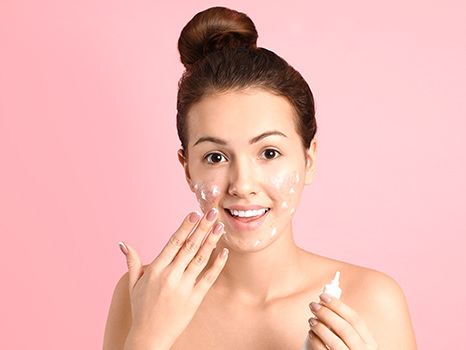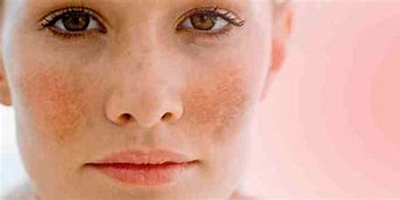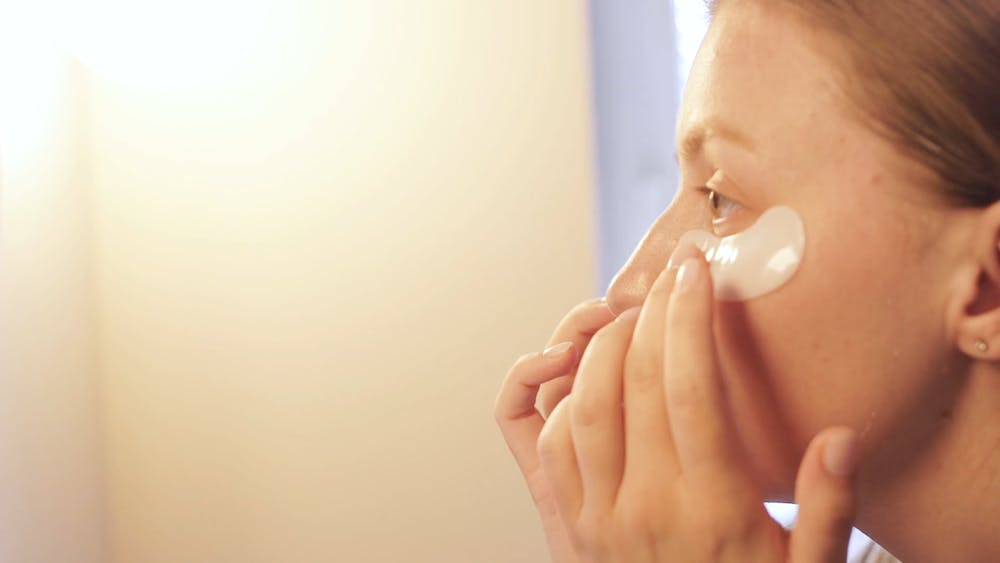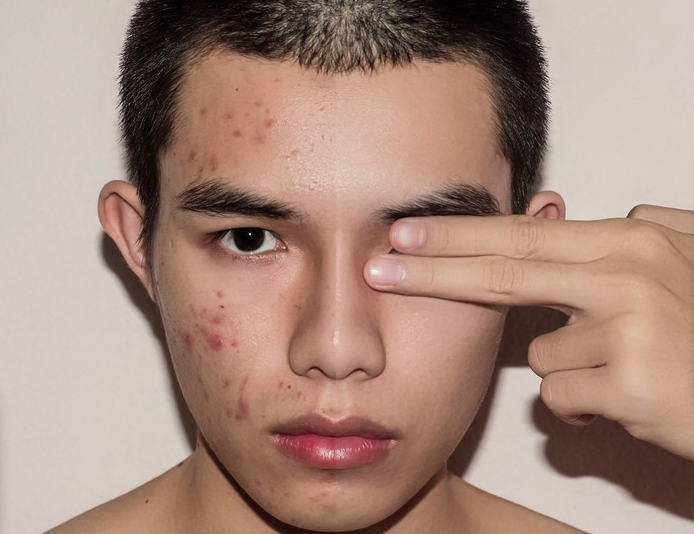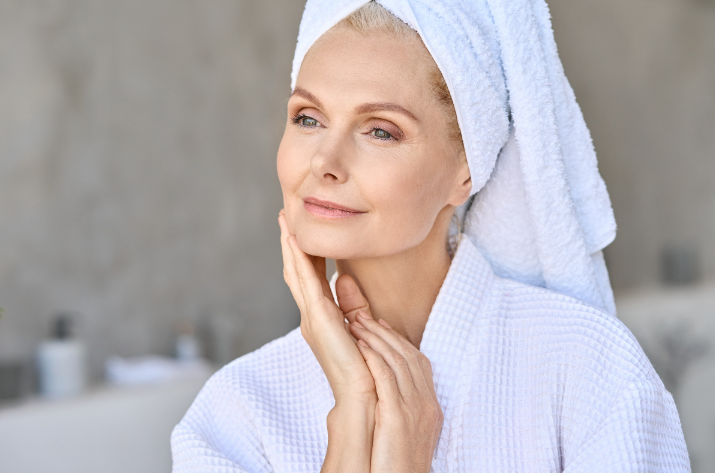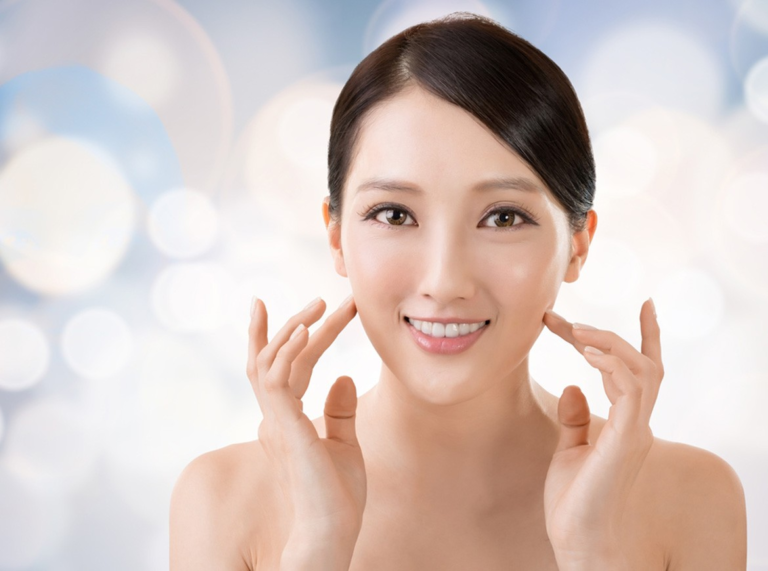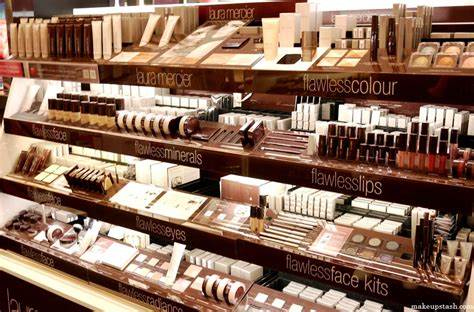How to Improve Textured Skin: Causes, Symptoms
Unlock the Secrets to Smooth, Radiant Skin

How to Improve Skin Texture with a Plant-Based Diet.
Are you tired of battling with rough, uneven skin texture? Look no further! Our comprehensive guide on How to Improve Textured Skin reveals the ultimate strategies to achieve that coveted velvety touch. Discover the causes behind textured skin, from genetics to environmental factors, and learn how to transform your skincare routine with effective treatments and lifestyle changes.
Various factors, including aging, sun damage, acne, and dehydration, can cause textured skin. If you struggle with uneven texture, you know how frustrating it can be to find products and treatments that work. In this article, we’ll provide you with the ultimate guide to improving textured skin, including tips and tricks for choosing the right products and creating an effective skincare routine.
Understanding Textured Skin
The ideal skin texture should be velvety smooth to the touch, but it can often be challenging to achieve. Uneven skin texture may be caused by genetics, sun damage, or smoking. However, with proper care and attention, it can make a substantial difference in how your skin looks and feels.
What is the Scientific Cause of Textured Skin?
Uneven skin is often caused by dead cells that do not shed properly. Exfoliation can help remove these dead skin cells and prevent future build-up. Regularly applying moisturizer is another great way to improve skin texture, helping it plump up and smoothen while hydrating dry patches.
Moisturizers and Sunscreen Can Help
Products containing hyaluronic acid or glycerin can help provide added moisture. Masks or serums having these ingredients will soothe skin irritations while decreasing roughness. Limiting sun exposure is also essential to enhance the texture of your skin. Prolonged exposure to direct sunlight can make your skin appear rough, bumpy, or scaly, leading to dark spots and wrinkles forming over time.
Drink Plenty of Water
Finally, drinking plenty of water throughout the day can keep your skin hydrated and maintain its natural glow, thus preventing clogged pores. Suppose your skin has become rough or uneven. In that case, feel free to alter your skincare regimen.
There are various creams and masks designed to improve its texture. Find one suitable for your skin type. For instance, an oil-free moisturizer may work better for oily skin than rich creams for dry ones.
 RESTORE YOUTHFUL VITALITY WITH HYDROESSENTIAL™ SERUM
RESTORE YOUTHFUL VITALITY WITH HYDROESSENTIAL™ SERUMHydroessential™ Serum offers a comprehensive solution to aging skin concerns, providing visible results in as little as 48 hours. Crafted with award-winning, all-natural ingredients, including Japanese Witch Hazel and Aloe Barbadensis, this serum rejuvenates and revitalizes your skin. Experience the benefits of increased collagen production, improved skin elasticity, and reduced pigmentation with Hydroessential™ Serum. Don’t wait any longer – order now and discover the secret to youthful, glowing skin!
FOR YOUR SAFETY CLICK HERE TO BUY FROM THE OFFICIAL HYDROESSENTIAL WEBSITE
Identifying Common Causes of Textured Skin
Many people experience rough skin at some point, whether in the form of a dry or oily complexion, bumpy texture, or dull, blotchy tone. Textured skin can be caused by numerous factors ranging from blocked pores and inflammation to using inappropriate skincare products.
Genetic and Environmental Impact
Genetics has an enormous effect on how we look, while environmental factors like pollution, sun damage, smoking, and dehydration may also have an impact. It is crucial to know your exact symptoms to make an accurate assessment and treatment plan for skin texture issues.
Exfoliation Benefits: A Key to Smoother Skin
Exfoliation is one of the best ways to repair rough skin texture, restore an even tone, and lessen hyperpigmentation, dark spots, and acne scarring.
Treating Discoloration: Effective Strategies for Even Skin Tone
Breaking melanin clusters that lead to discoloration and eliminating microbes that contribute to flaky patches is essential in treating discolored skin. Increasing cell turnover boosts collagen production for a smoother, softer, more radiant-looking complexion.
Antioxidant Serums: Boosting Radiance with Vitamin C
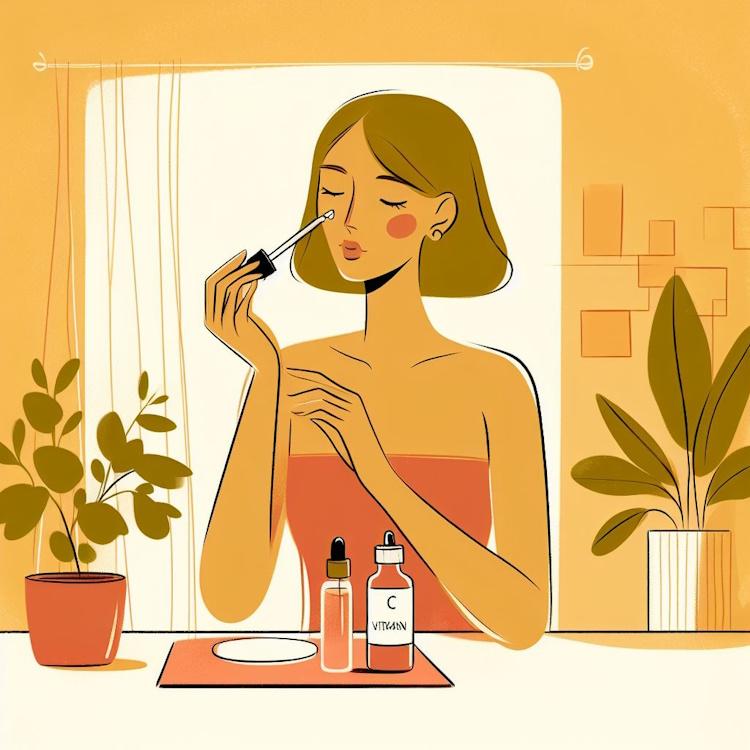
How to Brighten Skin Tone with Vitamin C Serum.
Searching for an antioxidant-packed serum should also be high on your list. These may contain Vitamin C to enhance your body’s natural ability to brighten and smooth rough, uneven skin surfaces.
Sun Protection Essentials: Choosing the Right Sunscreen
Important, good sunscreen is also an absolute necessity. Opting for one with broad-spectrum protection from both UVA and UVB rays will help avoid sun damage – one of the primary sources of uneven texture in the skin.
Routine Care for Textured Skin: The Importance of Regular Exfoliation and Moisturization
Those suffering from textured complexions should exfoliate and moisturize regularly to combat it. Exfoliating twice weekly with a face wash can help remove dead skin cells, unclog pores, and restore an even complexion.
Symptoms of Textured Skin
Genetic and Environmental Causes
Uneven skin texture may be caused by genetics, age, sun damage, smoking, and inadequate exfoliation. Incorporating gentle exfoliating products or scrubs into your daily skincare regimen will be key in maintaining hydrated and dead-cell-free skin.
Physical Appearance
Textured skin can often be found on the face and appear as small, medium, or large patches. This textured skin may appear rough or bumpy and even cause enlarged pores and dark spots to form.
Hyperpigmentation
Hyperpigmentation can result from rough skin texture. Hyperpigmented spots often feature red, brown, or gray hues and appear as flat spots or uneven areas on the nose, cheeks, forehead, or chin.
Acne Scars and Skin Conditions
Acne scars can alter the texture of the skin in various ways. Shallow acne scars are known as “ice pick” scars, while deeper scars may leave a wide indentation or raised bumps.
Rosacea and Eczema
Rosacea and eczema can also cause texture changes on the skin, including enlarged pores that contain pus-filled spots resembling acne blemishes.
These spots may lead to dryness, making your skin appear thick and flaky. If this is an issue for you, consult a dermatologist immediately for treatment options.
Broken capillaries, referred to as spider veins, are another hallmark of textured skin. These spider-weblike patterns form when blood vessels under the skin surface erupt or expand abnormally and make their presence known – they’re easily noticeable on faces and can be quite unsightly if untreated properly; treatments include over-the-counter medications or seeking professional help from healthcare practitioners.
Treatments to Improve Textured Skin
Various treatments can help improve textured skin. This may include exfoliation and hydration.
Exfoliation for Skin Health
Exfoliation is an integral component of healthy skincare regimens. It should form part of an ongoing routine to keep skin looking its best. Exfoliating will remove dead cells that accumulate on your surface while helping hydrating products penetrate more quickly.
Retinol and Antioxidants
Retinol-based products can also help to alleviate uneven texture by speeding up cell turnover and stimulating collagen production, as well as antioxidant-rich effects like vitamin C that even out skin tone and reduce fine lines and wrinkles.
Chemical Peels
Chemical peels can also be an excellent choice. Safe acids like glycolic, lactic, or salicylic acids safely exfoliate dead skin to increase cell turnover and promote regeneration for glowing and healthier-looking skin.
Fractional Laser Therapy
Fractional lasers have become incredibly popular for treating uneven skin texture. They create millions of micro-treatment zones in the upper layers of skin to replace damaged cells with healthy new tissue for smoother and even-toned results.
Microneedling Benefits
Microneedling is a noninvasive solution to uneven skin tone and rough texture by naturally stimulating your body to produce collagen and elastin. Microneedling has proven successful across various skin types and colors; it’s often used to address acne scarring, enlarged pores, and fine lines/wrinkles.
Factors Affecting Skin Texture
Many factors, including aging, stress, diet, and environmental pollutants, may cause uneven skin texture. Consulting a dermatologist could yield the best results if this issue persists.
Lifestyle Changes
As well as investing in effective skincare products, there are lifestyle adjustments you can make to boost the appearance of your skin and overall well-being. These changes will benefit your complexion and have an equally positive effect on your overall well-being.
Plant-Based Diet for Skin Vitality
Eating more plant-based foods can be one of the best lifestyle changes to support healthier skin. They contain naturally abundant antioxidants and fiber proven to reduce inflammation while protecting from free radical damage.
Best Skincare For Oily Skin: Cleansing, Hydrating, Acne (wherecanibuythat.us)
Colorful Fruits and Vegetables
Integrating more colorful fruits and vegetables into your diet effectively strengthens your skin’s elasticity. Their carotenoids, vitamins, and minerals will stimulate new cell production while replenishing collagen supplies in your skin.
The Power of Beta-Carotene and Lutein
Beta-carotene and other antioxidants in certain foods, like beta-carotene, are key components in maintaining skin health. Furthermore, eating foods containing lutein – responsible for healthy cell development in your skin cells and proven to decrease fine wrinkles – is also crucial.
Hydration and Skin Health
Hydration is key for healthy skin. Drinking at least eight glasses daily to remain properly hydrated will ensure you flush out toxins from your system and improve digestion, leading to healthier-looking skin.
Sleep Hygiene for Radiant Skin
Attentive sleep hygiene is key to overall skin health. Not getting enough shuteye can dull your complexion and reduce its elasticity. Therefore, it’s recommended that adults get at least 7-9 hours of restful slumber each night.
Combating Skin Damage with Lifestyle Choices
An additional way to improve skin health is limiting smoking and managing stress effectively, both of which have adverse effects, by finding ways to lessen both as much as possible.
References: Textured Skin
Aging changes in skin: MedlinePlus Medical Encyclopedia

